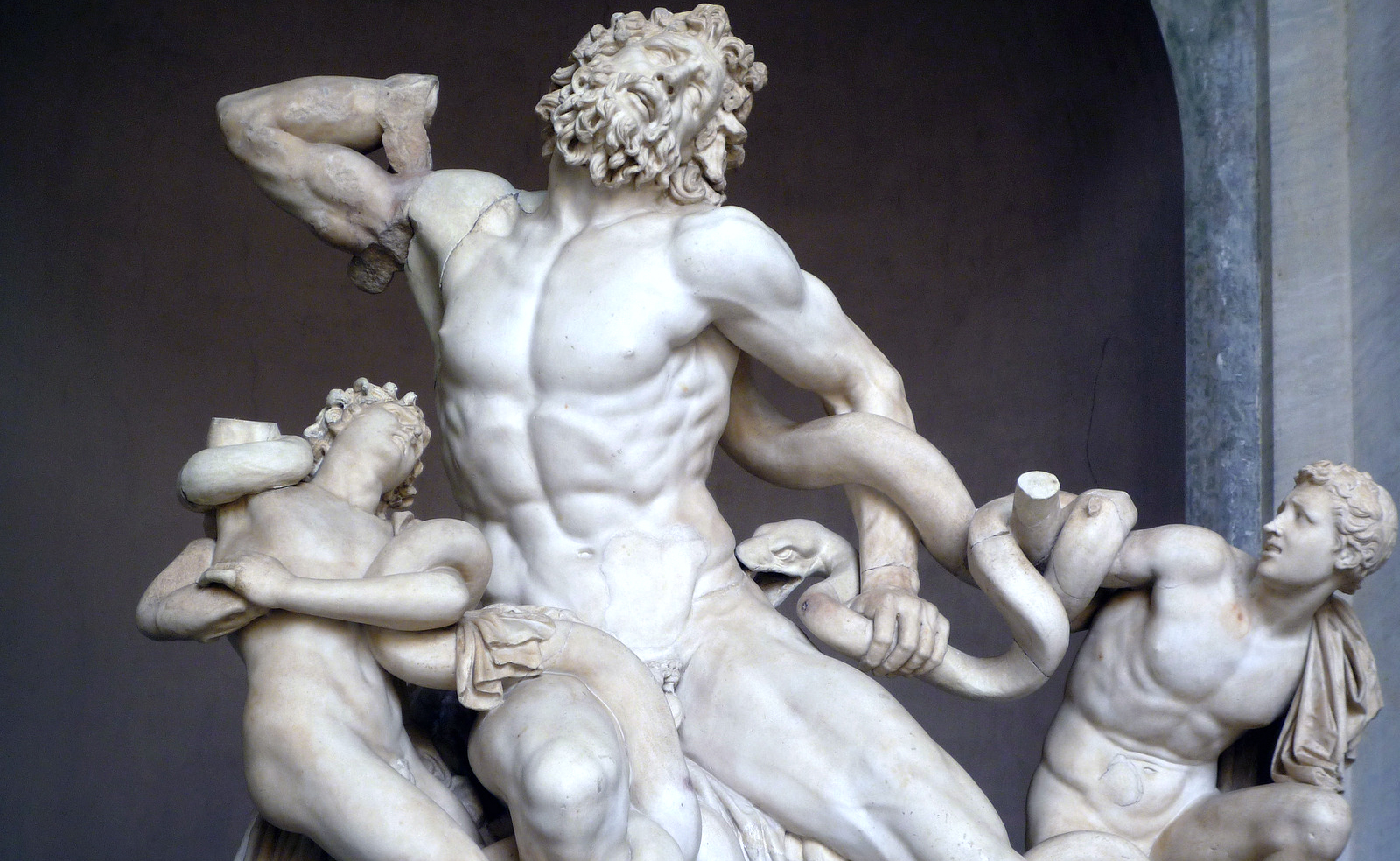The syncretism of these two mighty cultures resulted in a fusion that went beyond mere imitation. It birthed a unique amalgamation, where the stoic virtues of Rome intertwined with the intellectual prowess of Greece, giving rise to a cultural panorama that surpassed the sum of its parts. The Roman Empire, in this intricate dance of cultural exchange, emerged as a mosaic of influences, with each tessera bearing the imprint of Classical Greece but also contributing its own distinctive hue to the overall composition. The cradle of democracy, slavery, and nudity—listed here are some attention-grabbing info in regards to the Greek world of antiquity.
Awesome, Interesting Fun Facts about Greek Empire
The interplay between Classical Greek culture and the Roman Empire wasn’t a unidirectional flow; rather, it was a dynamic and reciprocal exchange that gave rise to a cultural synthesis of unparalleled richness. The Romans, in assimilating Greek ideals, infused their own distinct flavor, creating a tapestry that was both diverse and harmonious. This cultural confluence manifested not only in the realms of philosophy and governance but also in architecture, literature, and artistic expressions.
1. Economic Pinnacle of Ancient Greece
During the zenith of its economic prowess, a historical epoch encapsulated within the boundaries of the 5th and 4th centuries BC, Ancient Greece stood as an unparalleled titan in the global economic landscape. The multifaceted tapestry of city-states, each boasting its unique cultural tapestry, collectively forged an economic juggernaut that left an indelible mark on the annals of history. The intricate interplay of commerce, arts, and philosophy catalyzed a flourishing economy that eclipsed contemporaneous rivals, establishing Ancient Greece as a beacon of prosperity.
2. Intercity Conflict and Olympic Truce
Amidst the splendor of economic ascendancy, the city-states of Ancient Greece were ensnared in a perpetual dance of conflict, a ballet of political and territorial discord that marked their historical narrative. However, amidst the tumult of perennial warfare, a curious tradition emerged on the eve of the revered Olympics—an event that transcended mere athleticism. A ceremonial truce, a respite in hostilities, cast its ephemeral shadow over the battlegrounds. This diplomatic interlude allowed denizens from disparate city-states to traverse the perilous landscapes unharmed, converging upon Olympia in a spirit of shared reverence for the sacred games.
3. Unveiling the Athletic Traditions
In a testament to the peculiarities that defined Ancient Greek culture, the athletic pursuits of the citizens manifested in a strikingly unconventional manner. Stripping away the conventional norms, the Ancient Greeks engaged in physical exertion in a state of undress. The athletic arenas, where prowess and skill were laid bare for public scrutiny, echoed with the sight of competitors exercising their physical prowess devoid of the encumbrance of clothing. This audacious choice, reflective of a cultural tapestry that prized physical excellence and unabashed self-expression, bestowed a distinctive character upon Ancient Greek athleticism, rendering it an embodiment of both prowess and eccentricity.
4. Etymology of “School”
The intriguing term “school” traces its linguistic roots back to ancient Greece, where it finds its origin in the Greek phrase denoting “free time.” Delving into the etymology of this seemingly commonplace word reveals a fascinating connection between the concept of education and the notion of leisure. In the ancient Greek context, the very essence of schooling was intertwined with the idea of liberating one’s mind during moments of freedom, underscoring a perspective on learning that diverges significantly from modern associations.
5. Etymology of “Music” and Its Mythological Roots
The evocative term “music” finds its etymological origins entwined with the graceful threads of Greek mythology. In the intricate tapestry of linguistic history, the word “music” derives its resonance from the Muses, celestial beings revered as the goddesses of the humanities in the ancient Hellenic pantheon. These ethereal entities, with their divine influence, bestowed inspiration upon mortals, fostering the genesis of artistic expression. The linguistic journey of “music” thus transports us to the mythical realm where creativity intertwines with the divine, echoing the harmonious chords of ancient cultural significance.
6. Athletic Spectacles at the Greek Olympics
Venturing into the annals of Greek sporting grandeur, the multifaceted stage of the Olympic Games unfolds with a captivating display of physical prowess. The amphitheater of athleticism witnessed a myriad of disciplines, encompassing wrestling, boxing, long jump, javelin throw, discus hurling, and the exhilarating chariot racing. Amidst this grandeur, however, the wrestling event emerges as a crucible of unparalleled challenges.
In stark contrast to the structured regulations of contemporary sports, the contenders in the ancient wrestling arena faced a daunting absence of stringent rules, further compounded by the peculiar stipulation of competing in a state of undress. A nuanced fusion of physicality and unpredictability marked the essence of this ancient competition, casting a shadow of intrigue and awe upon the hallowed grounds of the Olympiad.
7. Mentorship in Ancient Greece
In the realm of Ancient Greece, the education of affluent youth transcended conventional classrooms. A pivotal facet of a privileged teenager’s learning experience involved an intimate mentorship with an elder. This mentorship, a tapestry woven with wisdom and guidance, found its roots in various locales and practices. Notably, it embraced a nuanced relationship dynamic that might have included the controversial element of pederastic love, an intricate layer adding both depth and complexity to the educational fabric of that era.
8. Aristarchus of Samos
In the enigmatic corridors of Ancient Greek intellectual pursuits, Aristarchus of Samos emerges as a luminary thinker. It was within the expansive realms of the third century BC that Aristarchus boldly proposed a speculative idea that would later revolutionize cosmology. At the heart of his groundbreaking proposition lay the audacious notion that the Sun, a celestial giant, assumed a central role around which the planets orchestrated their cosmic dance. This daring hypothesis marked a pivotal juncture in the trajectory of astronomical thought, laying the groundwork for the heliocentric model that would resurface centuries later during the Renaissance.
9. Mycenaeans and the Tapestry of Civilization
Approximately four millennia ago, the seeds of what would burgeon into the first Ancient Greek Empire were sown. The formidable Mycenaeans, hailing from the Greek island of Crete, orchestrated this cultural symphony around 1600 BC. The empire, like a mosaic, gradually unfolded its reach, extending beyond the confines of Greece and weaving its influence throughout Europe. The epoch of 800 BC witnessed a transformative phase, as the Greeks, like cosmic architects, began delineating their expansive domain into distinctive city-states. Each city-state, akin to a miniature universe, boasted its unique legal code, societal customs, and governance structure. This kaleidoscopic tapestry epitomized the kaleidoscopic nature of the burgeoning Ancient Greek civilization, a civilization destined to resonate across the annals of history.
10. Unveiling the Rigorous Ambiguity of Ancient Wrestling
Delving deeper into the enigmatic world of ancient wrestling, the rigorous ambiguity surrounding this primal contest reveals itself. The competitors, stripped of conventional regulations, grappled in an environment where improvisation and sheer physicality reigned supreme. The absence of a rulebook transformed the wrestling arena into a chaotic theater of strength and strategy, where adaptability and instinct became the guiding principles.
This unbridled form of athletic expression transcended the boundaries of conventional sportsmanship, immersing the participants in a raw and unscripted confrontation. The mere mention of this archaic wrestling spectacle elicits a visceral reaction, an echo from a bygone era when the human form served as the canvas upon which the drama of competition unfolded.
11. Navigating the Nuances of Bare Competition
A palpable sense of astonishment permeates the historical narrative when exploring the intricacies of wrestling within the ancient Olympic framework. The competitors, devoid of the protective armor of modern athletic attire, grappled with both their adversaries and the vulnerability of their exposed forms. This peculiar facet of the contest, the mandatory participation in the buff, adds an extra layer of perplexity to the already intense physicality of the event. The wrestlers, navigating the nuances of bare competition, not only contended with each other but also embraced a raw, unadulterated form of athleticism that transcended the constraints of modesty. The juxtaposition of physical prowess and exposed vulnerability in this ancient spectacle serves as a testament to the primal and unapologetic nature of early Olympic competition.
12. Gastronomic Superstitions in Ancient Greece
The culinary customs of ancient Greece were adorned with peculiar superstitions, transcending mere dietary preferences. Among these idiosyncrasies, an aversion to beans stood out prominently. The Greeks, imbued with a belief system that extended beyond the boundaries of nutrition, held a curious conviction that beans harbored the souls of the useless. This distinctive culinary taboo, far from a mere gastronomic choice, reflects the deep-seated intertwining of spiritual beliefs and daily sustenance in the ancient Greek psyche, providing a lens into a culinary culture rich in symbolic significance.
13. A Soaking Affair with Public Baths
The ancient Romans, in stark contrast to their Greek counterparts, manifested a fervent enthusiasm for communal bathing practices. Bathing, for the Romans, was not a perfunctory act but an indulgent ritual ingrained in daily life. With an ardor for cleanliness and relaxation, the Romans often frequented public baths with a remarkable regularity – sometimes immersing themselves in these communal spaces on a daily basis. This bathing culture reveals not only a commitment to personal hygiene but also a social and recreational dimension, portraying the Romans as a people who embraced the therapeutic and social aspects of communal bathing as integral elements of their daily routine.
14. Etymology of “Dinosaur”
The etymological roots of the term “Dinosaur” trace back to ancient Greece, where it emerges from the fusion of two Greek words – “deinos,” meaning terrible or fearfully great, and “sauros,” translating to lizard. This linguistic amalgamation encapsulates the awe-inspiring nature attributed to these colossal prehistoric creatures. The Greeks, with their penchant for descriptive nomenclature, inadvertently bestowed an evocative moniker upon these ancient reptiles, encapsulating both their formidable size and perceived dreadfulness.

15. Absence of “Religion” in Ancient Greek Lexicon
Curiously, the intricate tapestry of ancient Greek vocabulary lacked a distinct term to encapsulate the complex and multifaceted concept of “religion.” Unlike contemporary languages with specific lexemes for matters of faith and spirituality, the Greeks navigated their philosophical and theological discourse without a singular word devoted to encapsulating the intricate web of beliefs, rituals, and divine interactions that constitute the broader umbrella of religion. This linguistic peculiarity invites contemplation on how the absence of a dedicated term might have shaped the conceptualization and discussion of religious matters in the ancient Hellenic world.
16. Attire of the Ancient Greeks: The Chiton and Social Disparities
Delving into the sartorial choices of the ancient Greeks unveils a fascinating socio-cultural tapestry dominated by the ubiquitous chiton. This garment, akin to an elongated T-shirt, manifested as a sartorial staple for the majority of the populace. Crafted from a single expansive piece of cotton, the chiton exemplified simplicity in design and practicality in wear. However, this seemingly egalitarian attire belied the harsh realities of societal stratification. The impoverished class, relegated to the fringes of society, found solace in the rudimentary loincloth – a meager strip of fabric snugly wrapped around the waist. This stark contrast in clothing underscores the profound socioeconomic disparities that permeated the ancient Greek social fabric.
17. Struggling Elegance: The Loincloth of the Ancient Greek Slaves
Within the vast mosaic of ancient Greek attire, the destitute and subjugated stratum of society bore the weight of necessity in the form of the loincloth. A scanty piece of material, delicately draped around the waist, the loincloth epitomized the minimalist approach to clothing forced upon those at the lower echelons of the societal hierarchy. In contrast to the elaborate folds of the chiton worn by the privileged, the loincloth symbolized both the resilience and vulnerability of the disenfranchised. This meager garment, with its inherent lack of opulence, serves as a poignant reminder of the divergent destinies dictated by the capricious whims of social status in ancient Greece.
18. Greek Migration Waves and Proto-Greek Language
The Hellenic saga unfolds with captivating intricacy as the Greeks embarked on a southward migration into the Balkan promontory, a narrative delineated by successive waves that reverberated through the annals of history. This odyssey commenced in the late third millennium BC, culminating with the epochal Dorian invasion. The linguistic tapestry of this era is woven with the threads of the proto-Greek language, an enigmatic vernacular whose origins linger in the elusive chasm between the 23rd and 17th centuries BC. The cradle of Hellenic culture was forged amidst the undulating currents of time, laying the foundation for a civilization that would resonate through the ages.
19. Mycenaean Greece: Reign of Agamemnon and the Troyan Epics
The epoch spanning 1600 BC to approximately 1100 BC beckons us into the realm of Mycenaean Greece, an age resplendent with the echoes of King Agamemnon’s rule and the epic sagas chronicled by the immortal Homer. These tales transcend the mundane and plunge us into the tapestry of war and glory, particularly the fabled conflicts against Troy. The Iliad and the Odyssey stand as enduring testaments to the valor and vicissitudes that defined this era. Mycenaean Greece emerges as a crucible of myth and reality, where the grandeur of Agamemnon’s court intertwines with the timeless narratives of gods and mortals.
20. The Enigmatic Dark Age: A Historical Abyss
From 1100 BC to the eighth century BC, an enigmatic shroud descends upon the Hellenic landscape, casting a shadow so profound that it is dubbed the “dark age.” Within this historical abyss, scant relics of written records survive, leaving archaeology to serve as a meager custodian of the past. A paucity of literary artifacts contrasts sharply with the preceding epochs, fostering an aura of mystery. Third-hand accounts, such as the narratives penned by Herodotus, Pausanias, Diodorus, and Jerome, emerge as fragile lifelines to a bygone era. Through these fragmented chronicles, we glean whispers of rulers and events that dared to challenge the veil of obscurity.
21. Herodotus, Pausanias, Diodorus, and Jerome
The annals of this murky interlude are pieced together by the intrepid chroniclers of antiquity. Herodotus, in his magnum opus “Histories,” endeavors to resurrect the whispers of the dark age, weaving a mosaic of events and characters that transcend the boundaries of time. Pausanias, through his “Description of Greece,” becomes a literary cartographer navigating the treacherous terrain of historical voids. Diodorus, in his monumental “Bibliotheca,” contributes fragments to this intricate puzzle, connecting the tenuous threads of a forgotten tapestry. Jerome, with his “Chronicon,” stands as a vigilant guardian of the temporal boundary, etching the remnants of ancient Greece onto the parchment of historical consciousness.
22. Alexander’s Denouement
The zenith of ancient Greek history unfolds with the resounding cadence of Alexander the Great, whose indomitable spirit etched its mark on the canvas of time. The culmination arrives in 323 BC, marking the denouement of an epoch. Alexander’s reign, a symphony of conquest and cultural amalgamation, signifies a paradigm shift that resonates far beyond his mortal tenure. The Hellenistic era rises from the ashes of antiquity, heralding the denouement of the classical age. With Alexander’s demise, the curtain falls on a chapter that spans millennia, leaving behind an enduring legacy that echoes through the corridors of history.
23. Economic Disparities in Ancient Greece and Egypt
In the realm of economic inequities during antiquity, a stark contrast emerges between the average daily wages of Greek and Egyptian workers. Delving into the socioeconomic nuances, it becomes evident that the Greek laborer, in terms of wheat, received a substantial 12 kg as part of their daily wage. This amount stands in stark juxtaposition to the compensation of their Egyptian counterparts during the Roman era, lingering at a mere 3.75 kg, a discrepancy that accentuates the economic disparities prevalent in the ancient world.
24. The Birth of the Modern Olympics in Greece
Greece, revered as the progenitor of the modern Olympic Games, beckons us into the annals of history where the inaugural Greek Olympics unfurled as a sacred homage to the mighty god, Zeus, in 776 BC. The historical tapestry woven around this epochal event lends an air of mystique to Greece’s cultural legacy. Historians, with a collective nod, assert that the genesis of these hallowed games lay in religious festivities, birthing a tradition that resonates through millennia.
25. Evolution of Ancient Greek Sporting Spectacles
Journeying through the corridors of time, we uncover a fascinating evolution in the nature of sporting events that transpired during ancient Greek times. The vivid mosaic of athletic pursuits was not a mirror image of the contemporary sports panorama. At the forefront, amidst the roar of spectators, thundered the chariot race—a thrilling yet perilous affair that captivated the hearts of the ancient Greeks. Simultaneously, an arcane discipline known as pankration emerged, blending the arts of wrestling and boxing into a formidable amalgamation of physical prowess. This kaleidoscopic array of sporting endeavors paints a vivid tableau of ancient Greek athleticism, where danger and excitement walked hand in hand.
26. Origins of Competitive Boxing in Ancient Greece
Boxing in ancient Greece was a unique and distinct occasion, deviating from the modern structure that divides it into various weight classes. Unlike contemporary practices, where fighters are categorized based on their weight, ancient Greek boxing encompassed a more unified approach. The historical roots of competitive boxing find their foundation in the vibrant landscapes of ancient Greece, marking it as the birthplace of highly intense and competitive events that bear resemblance to today’s modern mixed martial arts contests. Motivation – Mind – Success – Thinking – Productivity – Happiness
27. Unconventional Attire: Nudity and Thongs in Greek Boxing
An intriguing aspect of ancient Greek boxing lies in the unconventional attire chosen by participants. In stark contrast to the fully clad boxers of today, the majority of ancient Greek competitors either embraced complete nudity or donned minimal clothing, typically sporting only a thong. This distinctive choice in attire adds a layer of peculiarity to the sport, emphasizing the stark differences in cultural norms and preferences between ancient and contemporary times.
28. Practicality and Superstition in Ancient Greek Culture
The ancient Greeks, renowned for their wisdom and intellectual pursuits, exhibited a dichotomy in their beliefs. While practicality and reason were integral components of their worldview, superstitions held a significant sway over their daily lives. Despite their rational approach to various aspects of life, superstitions played a substantial role in shaping the routines and decisions of the ancient Greeks. This juxtaposition showcases the complexity and multifaceted nature of their society, where practicality and superstition coexisted in an intricate dance. Business – Money Making – Marketing – E-commerce
29. Everyday Superstitions: A Pervasive Influence
Superstitions, far from being isolated occurrences, permeated every facet of ancient Greek society. These irrational beliefs, ranging from the influence of omens on decision-making to the significance attached to various symbols, became ingrained in the daily lives of the Greeks. The pervasive nature of superstitions underscored the delicate balance between reason and mysticism in their culture, offering a nuanced understanding of the intricate tapestry that constituted the ancient Greek way of life.
30. Ominous Days and Superstitious Measures
In the tapestry of ancient Greek culture, certain days in every month were woven with threads of ominous foreboding. During these particular days, a peculiar superstition held sway, compelling individuals to shy away from essential tasks, such as sowing seeds or solemnizing marriages. The ominous nature of these days invoked a collective fear, urging people to take precautionary measures before undertaking significant endeavors. Such measures were not merely a result of baseless fears but were rooted in the belief that certain actions might incur the wrath of the gods. An illustrative example of this cautious approach was the act of prayer preceding the crossing of a river, a ritual aimed at appeasing the divine forces that governed their lives. Health books, guides, exercises, habits, Diets, and more
31. The Mycenaean Conquest and the Marvels of Mycenae’s Architecture
In the year 1450 BC, the mighty Minoans, dwelling in the sun-drenched isle of Crete, fell prey to the conquering force of the Mycenaeans hailing from the rugged Peloponnese. A testament to this ancient clash is found in the remnants of Mycenae, a formidable hill fortress that commands respect even in its dilapidated state. The stones constituting its walls are not mere masonry; they stand as colossal monuments, so massive that speculation arises about their origin, suggesting the involvement of mythical beings known as Cyclopes, capable of lifting stones beyond mortal capacity. Towering walls, some reaching a staggering thickness of 8 meters, and stones soaring up to 2 meters in height or length, form the skeletal remains of Mycenae’s architectural prowess. The enigma of how these structures were assembled unravels at the Ancient Greek Technology Museum in Athens, where the intricate methods employed by the Ancient Greeks come to light, revealing the ingenious engineering that underpinned their monumental constructions. Fitness – Meditation – Diet – Weight Loss – Healthy Living – Yoga
32. The Beard’s Cultural Significance in Ancient Greece
In the intricate tapestry of Ancient Greek culture, the beard emerges as a symbol of status, masculinity, and wisdom. Beyond being a mere growth of facial hair, a man’s beard was a manifestation of his societal standing, rendering grooming practices not just a personal concern but a realm of intense competition among men. Esteemed hairdressers of the time became sought-after artisans, sculpting facial hair into expressions of prestige. The Ancient Greeks, particularly, revered the beard as an emblem of manhood and sagacity, elevating its significance to a level beyond mere aesthetics. The stringent Spartan society, known for its martial discipline, went so far as to employ the shaving of beards as a punitive measure against cowardice, reinforcing the beard’s role as a symbol intertwined with honor and courage. RPM 3.0 – 60% CONVERSION & Money for Affiliate Marketing
33. The Philosophical Discourse on Hair and Baldness
Delving into the depths of Ancient Greek beliefs, one encounters a unique reverence for the human hair, perceived as the most valuable product the human body could yield. This perspective extended to the afterlife, where it was believed that the hair bestowed strength upon the departed souls embarking on their journey to the Underworld. Paradoxically, the act of losing hair carried no negative connotations for the Ancient Greeks; instead, it was hailed as a manifestation of wisdom. The evidence of this belief is carved into the stone forms of philosophers, whose statues, prominently displayed across the ages, exhibit the baldness considered a distinctive mark of their intellectual prowess. The juxtaposition of the value ascribed to hair during life and the acceptance of its loss as a symbol of wisdom encapsulates the intricacies of Ancient Greek philosophical thought.
More Interesting Articles
- 100 Cool Facts about Japan for Curious Learners
- 100 Interesting Facts About China to Know About
- 100 Venice, Italy Facts – Fun Facts about Venice
- 100 Top Interesting, Evergreen Facts about Nepal
- Largest Banks in the World – Big Banks with Reputation
- Top 100 Medical Colleges in the World
- The List of World Top 100 Universities
- 40 Interesting Facts about Beautiful Pokhara, Nepal
- List of Current United States Senators of the Congress
- The States in Alphabetical Order – Names of States in the USA
- 60 Interesting Facts About Morocco for Beginners
- 100 Top Interesting Facts About South Korea for Beginners
- 50 Interesting Cape Town South Africa Facts
- 30 Amazing Tokyo Tower Fun Facts for Learners
- 60 Fun Facts about Barcelona for Curious Minds
- 100 Interesting Facts About Rome for Avid Learners
- 100 Top Interesting Facts about Ghana for Everyone
- 20 Interesting Facts About Bandung, Indonesia
- 23 Interesting Facts About Nagoya Japan
- 18 Facts About National Palace Museum, Taiwan



